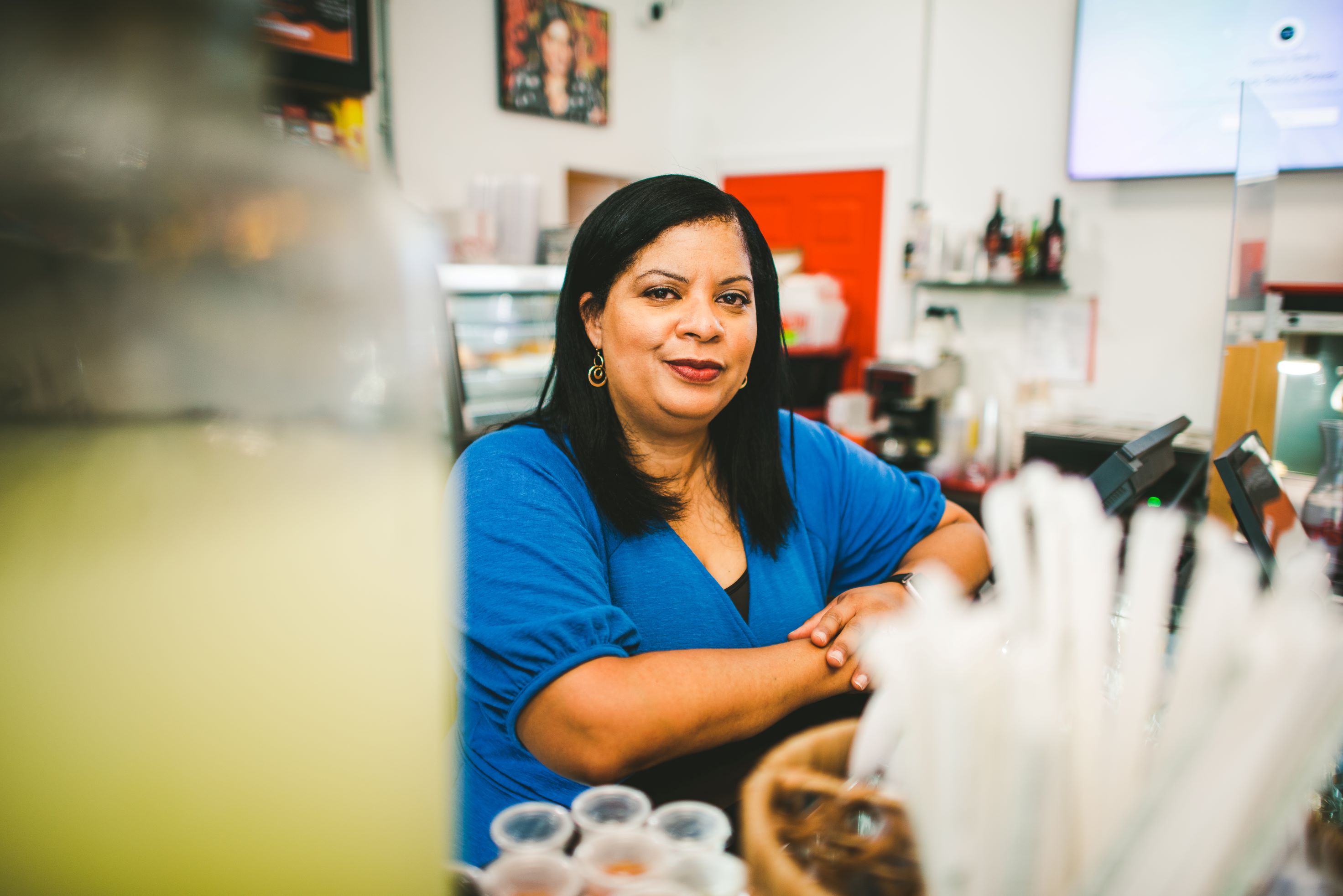Focusing on the target
New York City’s economy generates an annual gross metropolitan product of $1.66 trillion. Small businesses are arguably the city’s economic engine: Some 165,000 enterprises with under 250 employees are the source of 51% of jobs in the city. At the same time, African American and Hispanic small business face the same roadblocks and systemic inequalities that hinder BIPOC entrepreneurs across the country. While Blacks make up 20% of New York City’s population, for instance, African-American enterprises count for only 2% of businesses in the city. A more equitable small business environment in New York would create a stronger city as a whole-- a 2019 ICIC study estimates that a 11% increase in the number of jobs offered by small businesses would effectively eliminate unemployment in New York’s underserved communities.
Our Approach
The Entrepreneurs of Color Fund (EOCF) began lending in New York in 2018 with an initial $5 million in funding. In 2022 it made 440 loans to small businesses, deploying $15.5 million in vital capital. Thanks to the work of our CDFI partners, the EOCF approves applicants based on their character, business history and future prospects. We work to create flexible terms that they can meet that at the same time allow them to thrive and grow. Our collective efforts make it possible to provide loans to entrepreneurs who might otherwise be rejected by banks and other funders, with nearly 90% of our borrowers' credit scores under 750.
Our Partners
Our collaborative team of local CDFI partners supports you by providing capital and more. In the New York metropolitan area, the EOCF is working with five local community development financial institutions or CDFIs that both lend money but also provide key services including training, coaching and mentorship programs to help entrepreneurs succeed.

Ascendus has a bold vision of financial ascension for all and a mission is to empower low-to-moderate income business owners with access to capital and financial education. Since their inception over 30 years ago, Ascendus has dispersed $300 million in capital to 36,000 small business owners – primarily BIPOC, women, and immigrants. Its lending ranges from micro- and term-loans to credit lines for up to $250,000.

BOC Capital offers education, counseling , and financing solutions to entrepreneurs who are locked out of conventional credit markets. The organization support small businesses and their communities through lending and technical assistance. BOC offers term loans from $500 to $250,000 with repayment terms of up to seven years. In addition, BOC provides hand-on business assistance on topics such as loan readiness, financial management, financial statement preparation.

La Fuerza CDC provides minority- and women-owned enterprises in Nassau and Suffolk counties on Long Island both access to essential capital and business development services. La Fuerza’s education and training programs and webinars and cover a wide variety of essential topics from accounting to lease agreements.

Pursuit has been in operation over 65 years offering innovative financing to small business owners in New York Pursuit offers loans from $10,000 to $5.5 million as well as small business lines of credit for up to $100,000.

Trufund. Since 2005, Trufund has provided more than 2000 small business owners funding through loans totaling more than $170 million, work that helped to create and retain over 12,000 employees. Trufund offers both e-learning and in-person training, one-on-one business advisory programs in addition to financing in the form of term loans and non-revolving lines of credit from $50,000 to $350,000.
.
Are you a small business in New York?
Get in touch about our loans & technical assistance.
We’re working with companies across
a broad range of businesses:
Food & Beverage |
Retail |
Restaurants |
Apparel |
“Capital was what really allowed us to move forward as a business.”- Rachel Topping, Founder of Nappy Head Club |
Our borrwers are putting the money to work in a variety of ways:
✓ INVENTORY✓ PAYROLL✓ EQUIPMENT PURCHASE✓ RENT | ✓ EXPANSION✓ PAYING DOWN DEBT✓ NEW HIRES✓ COMMERCIAL REAL ESTATE ACQUISITION |

Nappy Head Club
A Small Business Spotlight
Sisters Rachel Topping and Rikki Richelle envisioned the Nappy Head Club clothing line as a space to foster a sense of community around Black beauty. The plan was bold, yet simple: Spark conversations about topics from curl care to colorism and simultaneously create nonpareil fashions tailored specifically for African Americans. Topping and Richelle began in 2017 with an Instagram account that generated a groundswell of positive feedback. Each time the two entrepreneurs rolled out small-batch limited edition drops they sold out instantly. While popularity wasn’t a problem, cash flow turned out to be an obstacle that blocked Topping and Richelle from expanding. “Manufacturers had a requirement for larger minimum order quantities, which I couldn’t do with the amount of cash we had. We needed capital to get a bit more product and use the additional revenue to expand.”
Topping began to hunt for small business resources to provide advice, mentorship, and importantly the funding to respond to meet rapidly growing demand. She found BOC Capital, a Brooklyn CDFI and Entrepreneurs of Color Fund partner. A counselor at BOC helped to map out Nappy Head Club’s next steps. “BOC really went the extra mile to help me understand my options and break down all of the different funds out there.”
With loan funds from BOC, Nappy Head Club expanded their inventory, and create larger, high-quality releases. Sales grew four-fold, making it possible for Topping to hire new employees, and seek out work opportunities that would not have been possible before. “Capital was really what allowed us to move forward as a business,” she says.
